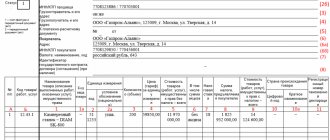In what cases can land be provided to an agricultural producer without bidding?
It has become easier for the municipality to avoid mistakes when providing land for rent or ownership without bidding. Now you can make decisions based on the latest findings of the Supreme Court. He summarized the judicial practice in cases related to the provision of land for agricultural production in the Review dated December 23, 2020. This document can also be relied upon in the event that legal proceedings arise on the claim of the tenant or the prosecutor. Lower authorities will be guided by the findings of the Supreme Court. The article contains answers to questions that municipalities often have when providing land plots for rent or ownership.
To whom can land plots be provided without bidding?
The municipality may provide its land plot to another person for ownership or lease based on the results of bidding (clause 1 of article 39.3, clause 1 of article 39.6 of the Land Code). But there are cases when the administration has the right not to conduct tenders. This is possible, in particular, if you provide land for farming or related production (see table below).
Cases when you can provide a plot for rent or sell it without bidding
| To whom can the plot be provided? | Prerequisites | Base |
| For rent | ||
| Peasant (farm) economy or agricultural organization | The tenant must: • be a participant in the state support program for agricultural development; • use the land for farming or other activities related to agricultural production | Subp. 12 paragraph 2 art. 39.6 ZK |
| Religious organization or Cossack society | The tenant must use the land for agricultural production. Cossack society - to preserve and develop the traditional way of life and management. It must be listed in the state register of Cossack societies | Subp. 17 clause 2 art. 39.6 ZK |
| To an agricultural producer with a valid contract land lease | The authorized body should not have information about those identified within the framework of the state land supervision and unresolved violations of the law when using the site. The tenant must apply for a new lease before the deadline expires validity of the old contract | Subp. 31 clause 2 art. 39.6 ZK |
| Ownership under a purchase and sale agreement | ||
| The tenant of a land plot intended for agricultural production | From the moment of concluding a lease agreement or transferring rights and obligations under such an agreement at least three years must pass. There should be no identified and unresolved violations legislation when using the site. The tenant must apply for a purchase and sale agreement before it expires duration of the lease agreement | Subp. 9 paragraph 2 art. 39.3 ZK |
Is it possible to provide a plot without bidding if there are several applicants for it?
If applications for a plot are received from several entrepreneurs, then the local self-government body must hold an auction and provide the land to the winner. The Supreme Court recognized this approach as correct (clause 1 of the Review).
EXAMPLE 1.
The head of a peasant farm (peasant farm) demanded that he be given a plot of land for rent without bidding. He referred to the provisions of Part 8 of Article 10 of the Federal Law of July 24, 2002 No. 101-FZ “On the turnover of agricultural land.” But local authorities refused, since there were other applicants for the site. The head of the farm went to court. He demanded that the decision of the local self-government body be declared illegal and that the municipality be obliged to enter into an agreement with the peasant farm.
The court of first instance concluded that the applicant's rights had been violated. The latter has the right to conclude a lease agreement without bidding with the local self-government body as an agricultural producer, a participant in the industry-wide state support program (subclause 12, clause 2, article 39.6 of the Land Code, clause 8, article 10 of Law No. 101-FZ).
Higher courts did not agree with this position. The Supreme Court supported them. The local self-government body, authorized to dispose of plots of agricultural land, received several applications from potential tenants. In this situation, the local self-government body is obliged to hold a tender (ruling of the Supreme Court dated 02/03/2020 No. 302-ES19-27335).
In what case can a lease be extended without bidding?
Bidding will not be required if the plot is already leased from the agricultural producer and he wishes to extend the contract for a new term (subclause 31, clause 2, article 39.6 of the Land Code). In this case, the LSG body has the right not to publish a notice about the provision of a plot for agriculture and agricultural production (clause 2 of the Review).
Note: You can extend the lease for a new term regardless of the category of land
EXAMPLE 2.
The administration of the municipality and the head of the peasant farm entered into a lease agreement for a land plot without bidding. Later, the parties signed an additional agreement, which extended the term of the agreement by five years. But the prosecutor considered that the plot should have been provided based on the results of the auction. He filed a lawsuit to declare the agreement invalid.
The courts of first and appellate instances, as well as the district court, satisfied the claims (ruling of the Fourth Arbitration Court of Appeal dated December 11, 2019 in case No. A19-17524/2017). But the Supreme Court supported the head of the peasant farm. He indicated that a new lease agreement for a municipally owned land plot can be concluded without bidding if three conditions are met.
1. The municipality provided the tenant with land for agricultural production.
2. There is no information that the state land inspection body has identified violations in the use of the leased plot. Or the tenant committed violations, but eliminated them.
3. The tenant submitted an application to the local self-government body to conclude a new land lease agreement before the old agreement expired.
The head of the peasant farm has been using the disputed plot under lease agreements for agricultural activities for 10 years and has not committed any violations. I sent the application for concluding a lease agreement on time. The Supreme Court overturned the decisions of the lower courts and sent the case for a new trial.
Is it possible to extend the lease agreement for an indefinite period without bidding?
The Land Code contains a rule for tenants who received plots for agricultural production without bidding before March 1, 2015. If such a tenant continues to use the land plot, and the lessor does not object to this, then the contract, after the expiration of its term, is extended under the same conditions for an indefinite period. In this case, the tenant has the right to submit an application to conclude a new lease agreement without bidding (clause 3 of the Review).
Document: Determination dated May 20, 2020 No. 310-ES19-25907
EXAMPLE 3.
The company leased the land for five years. Used the plots for agricultural production. When the contract expired, the company continued to use these areas. Its management believed that the lease had been renewed indefinitely. There were no objections from the landlord. During the period of validity of the agreement, the company applied to the authorized body (committee) with an application to conclude a lease agreement for a new term on the basis of subparagraph 31 of paragraph 2 of Article 39.6 of the Land Code.
The company committee refused. Then she filed a lawsuit to declare the refusal illegal.
The Supreme Court indicated that the Land Code and Law No. 101-FZ, as amended before March 1, 2015, did not exclude the possibility of renewing the contract for an indefinite period, during the conclusion of which it was possible not to hold a tender. A lease agreement for municipal property can be renewed for an indefinite period in the manner prescribed by paragraph 2 of Article 621 of the Civil Code, if it was concluded before the entry into force of the law that made auctions mandatory (Article 422 of the Civil Code, clause 1 of the Resolution of the Plenum of the Supreme Arbitration Court dated November 17, 2011 No. 73). The provisions of the code as amended, effective from March 1, 2015, do not directly exclude the application of paragraph 2 of Article 621 of the Civil Code to a lease agreement for a municipal land plot legally concluded without bidding. The Supreme Court granted the claim.
At what point does the tenant have the right to purchase the plot?
The tenant can buy the leased plot into ownership, but not immediately. He must use this land for at least three years (clause 2 of article 39.3 of the Land Code). Count this period not only according to the last lease agreement. Also take into account previous lease agreements consecutively concluded with this tenant (clause 4 of the Review).
EXAMPLE 4.
The head of the peasant farm asked the administration to sell the land plot he had rented without bidding. Officials refused the entrepreneur: the three-year period from the date of conclusion of the last lease agreement had not yet expired. The head of the peasant farm went to court.
The court indicated that the administration and the head of the peasant farm consistently entered into land lease agreements for agricultural production. The farm used the land for a total of more than three years. Therefore, the administration’s refusal is illegal.
3 years is the minimum period for using leased land. Only when it expires will the tenant have the right to buy the plot
The lease term is not important for the purchase of land if the tenant has re-registered the right of permanent (indefinite) use of an agricultural plot to a lease right. In this case, the agricultural producer has the right to acquire ownership of the plot regardless of the period of its use under the lease agreement (clause 7 of the Review).
EXAMPLE 5.
The tenant had the right to perpetual use of the agricultural land plot. He re-registered this right by entering into a 49-year lease. Immediately after this, the tenant tried to buy the land. Officials, and then the courts of first and appellate instances, refused the agricultural producer. They indicated that he had been using the site for less than three years from the date of signing the lease agreement sub. 9 paragraph 2 art. 39.3 ZK).
The Supreme Court corrected this error. A tenant who has re-registered the right of permanent (perpetual) use of a plot of agricultural land on which there are no buildings or structures into a leasehold right, has the right to acquire ownership of this land. There are no restrictions on the period of ownership of such a plot under the lease agreement for the exercise of the right to purchase.
What area of land does an agricultural producer have the right to purchase?
The local government body determines the area of the purchased plot of agricultural land, taking into account the requirements established by law for the formation of land plots. This area is not limited only by the area of the plot required for the use of the property located on it (clause 6 of the Review).
EXAMPLE 6.
The company wanted to buy the entire leased plot of agricultural land without bidding. But local authorities refused. They believed that it was enough to provide the tenant with ownership of the land necessary for the operation of the warehouse located on it. The company applied to the court to declare the refusal of the local self-government body illegal. The courts granted the plaintiff's application. The legislation does not contain restrictions on the area of the purchased land plot.
Is it possible to put up land shares for auction?
A local government body can put up for auction only a land plot that is formed from unclaimed land shares that are in municipal ownership. Do not put up the land shares themselves for auction (clause 10 of the Review).
EXAMPLE 7.
The company applied to the court to declare illegal the inaction of the local administration, which did not hold auctions for the sale of the land share. The plaintiff indicated that he, along with another company, uses a land plot that is in shared ownership. Since there are several interested parties who have the right to claim the acquisition of a land share from the municipality, local authorities must put this share up for auction.
The courts rejected the claim. Only the land plot formed from unclaimed shares can be put up for auction, and not the shares themselves.
Is it possible to sell a plot of land included in settlements to an agricultural producer?
If the plot is included in the land of a settlement, then the tenant cannot buy it for the purposes of agricultural production. Redemption becomes impossible from the moment when the type of permitted use of the site has changed in accordance with the rules of land use and development (clause 8 of the Review).
Only the land plot formed from unclaimed shares can be put up for auction, and not the shares themselves
EXAMPLE 8.
The company has been a tenant of a plot intended for agricultural production for more than three years. She contacted the administration department with an application to purchase this land without bidding. The department refused the ransom. In accordance with the general plan and land use and development rules, the site was classified as a public and business development zone. It is not intended to be used for agricultural purposes. The company went to court and demanded that the refusal be declared illegal and that the department be obliged to conclude a purchase and sale agreement for the site.+
The courts rejected the claim. The mere inclusion of a plot of land in a residential area is not a restriction on its purchase by the tenant. However, it is impossible to buy this land for agricultural production. The permitted use of the land plot must correspond to the purposes of its use specified in the tenant's application. Otherwise, the municipality has the right to refuse (Clause 14, Article 39.16 of the Land Code).
Land auction - what is it? Expanding the concept
Without going into complex concepts, this is one of the ways to register land rights. The rules for its organization and conduct are prescribed in Articles 39.11 and 39.12 of the Land Code of the Russian Federation.
The bidding procedure itself is simple. It has rules that are clearly regulated by law. For example, there are only a few grounds for declaring a bidder not allowed to bid.
The conduct of a land auction within the meaning of the legal norms regulating the procedure for its organization does not allow for ambiguous interpretations. This means: if a participant was not admitted unlawfully, then such a decision of the authority can be challenged. If a participant knows his rights and basic rules, then he can easily defend his own interests in any instance, even without a professional lawyer’s diploma.
Evasion and penalties
Auctions for the sale of land plots (or for their lease) are held in the presence of a commission and participants. The event is open, price proposals are submitted voluntarily. However, often citizens who won the auction do not want to sign the agreement or believe that until the parties agree on the document, adjustments can be made to it. It goes without saying that most often in this way they try to change (or completely remove) clauses on the winner’s responsibility, for example, for failure to pay rent.
It was discussed above that the draft agreement is attached to the notice, so it cannot be adjusted. The one who wins the procedure is required to sign an agreement. The law requires the government agency to provide three draft contracts to the winning bidder within ten days. If the latter refuses to sign, then, regardless of his motives, he is considered to have evaded concluding a contractual relationship.
What happens when you evade? The auction organizer draws up a protocol in the established form. The deposit that the winner previously paid is lost by him, and information about evasion is transferred to the Territorial OFAS.
The Antimonopoly Service decides whether to include such a citizen (individual entrepreneur or organization) in the register of unscrupulous participants. It should be noted that the applicant must prove that he had compelling reasons to refuse his signature. These may be family circumstances, for example, the need to pay for expensive treatment. This fact must be documented, otherwise the FAS may not heed the arguments.
If the decision to be included in the register is positive, then information about the participant is included in this list for a two-year period, after which the entry is cancelled. For two years, such a person cannot take part in land auctions.
What happens to the deposit
The deposit made by the participant who wins the procedure goes towards payment under the contract. The deposits of those who bargained but lost must be returned. This rule applies even when the participant was admitted, but did not show up for the procedure. The authorities have no reason to withhold his deposit.
In addition, if the applicant decided to withdraw his application and did so in writing before the deadline for accepting documents, then he receives his deposit funds back. If the reception is closed and there is one day left before the auction, then there is no point in withdrawing the application: the deposit will be lost. In this case, it is better to take part in the procedure or not attend it at all.
Auction Rules
Auctions for the sale of land plots are held on the day and hour specified in the notice. If there are two or more participants, then the auctioneer names the initial bidding price and then increases it sequentially. Participants express their opinions on the price using numbered cards, which are given to them before the start of the event. The winner is the one who offered a price higher than other participants.
Admission of applicants
There are only two legal grounds for refusing an applicant:
- no deposit has been paid;
- Not all documents or inaccurate information about the applicant have been submitted.
Citizens must provide a passport, and for firms only a completed application and a deposit payment are required. If the application is signed and brought by a director or another employee who, according to the company’s documents, can act in its interests without a power of attorney, then no other papers will be required. If the interests of the company are represented by its employee, then a power of attorney issued by the director is required. The authorities can obtain information about the company through the Federal Tax Service website.
The same applies to individuals who represent the interests of others by proxy. The notarial document must contain exactly the powers that are needed at the auction.







